Explore cancer pain with this informative guide. Discover practical tips and useful information for informed management. Our goal: to offer empathetic support to improve the quality of life of patients living with cancer of any kind.


Breast cancer is a malignant tumor that develops in the breast. There are different types of breast cancer depending on the cells from which they develop.
See all items
Prostate cancer is a disease that develops from initially normal prostate cells that transform and multiply in an uncontrolled manner, until forming a mass called a malignant tumor.
Available soon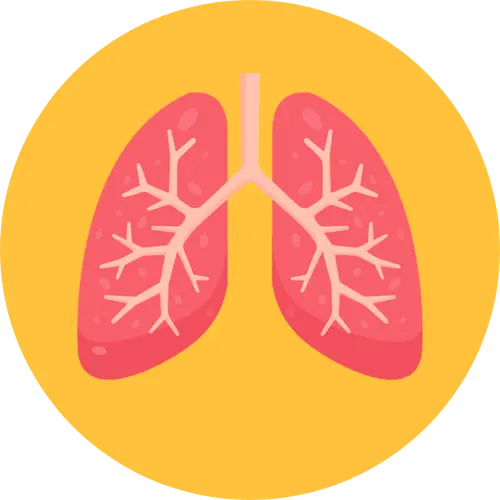
Lung cancer, also called lung cancer or bronchopulmonary cancer, is a disease of the cells in the bronchi or, more rarely, of the cells that line the pulmonary alveoli.
Available soon
Colon and rectal cancers are grouped together under the name colorectal cancer. They develop from cells that line the inner lining of the colon or rectum, mainly through the gradual transformation of a benign polyp.
Available soon
Pancreatic cancer is a disease of cells in the pancreas. It develops from an initially normal cell that transforms and multiplies in an uncontrolled manner, until forming a mass called a malignant tumor (or cancer).
Available soon
Uterine cancer is the most common type of cancer of the female reproductive system. It is a malignant tumor that starts in cells in the uterus.
Available soon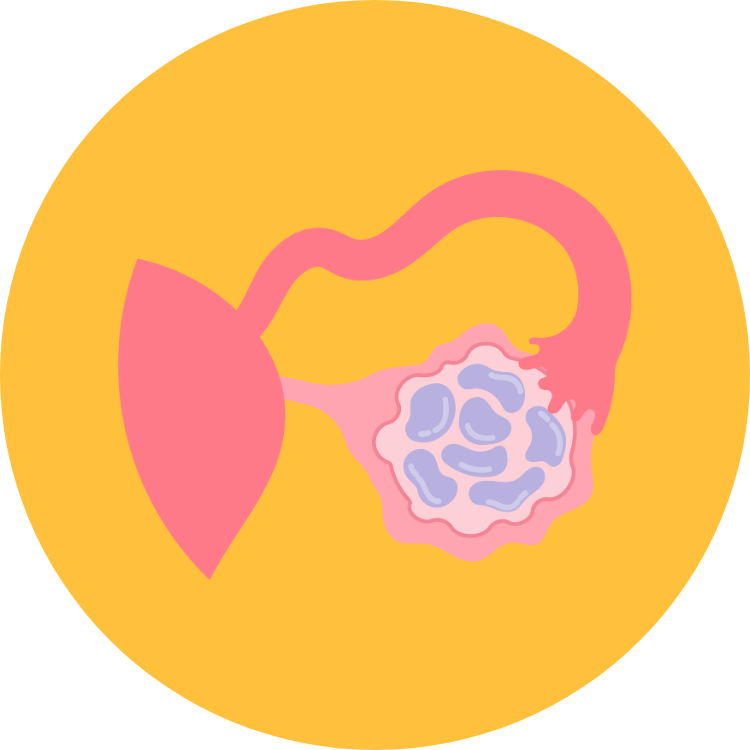
Ovarian cancer most often results from a malignant degeneration of the epithelial cells that line the ovary. It generally develops insidiously, without causing any particular clinical signs at the beginning of its growth.
Available soon
A genetic disease is a disease caused by one or more abnormalities on one or more chromosomes that cause certain cells in the body to function incorrectly.
Available soon
The most common liver cancer is hepatocellular carcinoma or hepatocarcinoma. It develops from specialized liver cells, called hepatocytes.
Available soon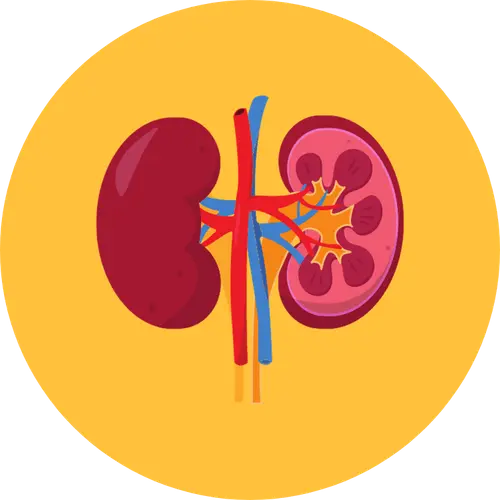
Kidney cancer can form from a cell in different parts of the kidney; in most cases, they are kidney parenchyma cells, constituting renal cell carcinoma. But there are many different types of kidney tumors.
Available soon
Most often, cancer forms from mucosal cells (urothelial epithelium). It is then called urothelial carcinoma. It is the most common bladder cancer.
Available soon
Leukemia is a blood cancer that starts in the blood and bone marrow. It occurs when the body produces excess abnormal white blood cells, which prevents the bone marrow from making red blood cells and platelets. There are different types of leukemias.
Available soon
Thyroid cancer is an abnormal multiplication of cells in the thyroid gland. It can take many forms. Although its causes are generally unknown, genetic factors or exposure to radiation, especially in childhood, may favor its onset
Available soon
Skin cancer is manifested by the uncontrolled and abnormal proliferation of skin cells, and more precisely of the epidermis, the outer layer of the skin.
Available soon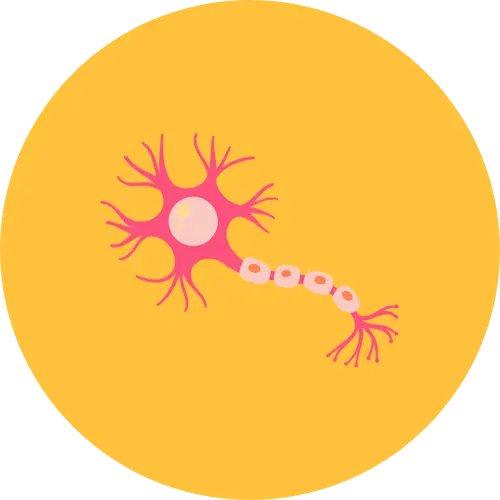
Cancers of the central nervous system include cancers that develop in the brain and spinal cord; some of these tumors, such as gliomas or lymphomas, are primary cancers, that is, they develop from brain cells.
Available soon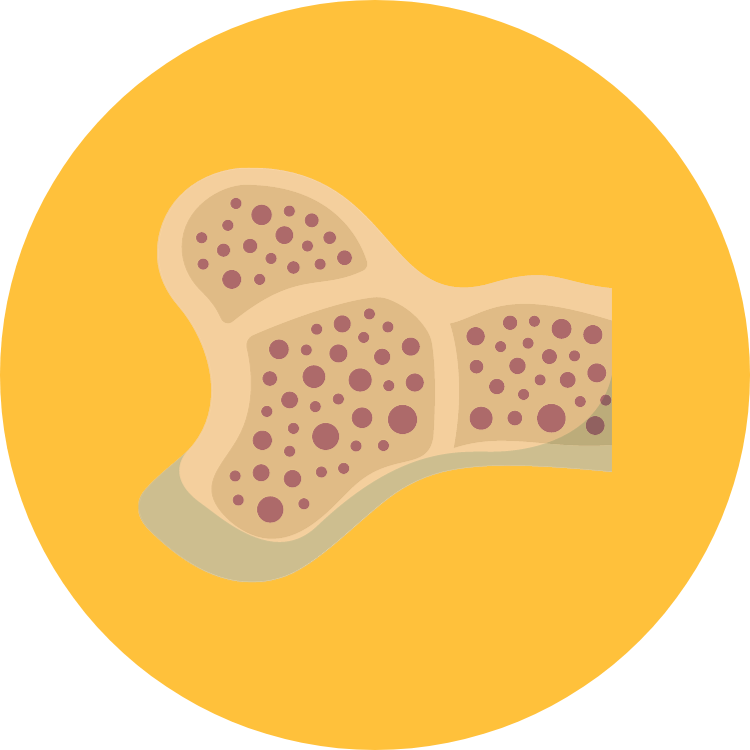
Bone cancer can form either in bone cells (called primary bone cancer) or start elsewhere in the body and then spread to bones (called secondary bone cancer or bone metastases).
Available soon
Head and neck cancers are cancers that form in the upper aerodigestive tract (lips, tongue, tongue, mouth, throat, larynx), the salivary glands, the nasopharynx* (area connecting the nose and the upper part of the throat) or the sinuses and the nasal cavity.
Available soonCancer pain goes beyond simple physical sensation, becoming a complex reality for many patients. In this informative exploration, we will succinctly address the major families of cancers, offering an overview of the unique challenges associated with each type. Our mission is to provide in-depth information and practical advice for those living in this reality. Learn how living a balanced lifestyle can help alleviate cancer-related symptoms.
Cancer pain is an often unavoidable companion, but understanding its specific nuances can be a first step toward more informed management. From breast cancers to blood cancers, each cancer family brings its own set of challenges, shaping patients' daily lives in a unique way.
In the complex cancer journey, pain occurs in a variety of ways, often becoming a daily companion for many patients. From acute pain to chronic sensations, each type of cancer can cause a variety of painful symptoms, such as chest pain associated with breast cancers, respiratory discomfort associated with lung cancers, or even persistent abdominal pain with colorectal cancers. Pelvic pain may accompany prostate and uterine cancers, while lower back pain may be associated with kidney cancers. Abdominal and back pain are common with liver and pancreatic cancers. This diversity of pain requires a thorough understanding for effective management, and our guide aims to explore these different dimensions, offering tailored advice to improve patients' daily well-being.
Breast cancer, whether carcinoma or sarcoma, can cause chest pain, discomfort, and treatment-related pain. Learn practical tips for relieving these symptoms while maintaining a balanced lifestyle.
Lung cancers present with pain associated with breathing and treatments. Explore strategies to improve quality of life while managing pain, and learn how the app Outch! can accompany you on this journey.
Prostate adenocarcinoma can lead to pelvic pain. Explore approaches to improving daily well-being and find out how you can contribute to medical research with the Ouch! app.
For those who face these diseases on a daily basis, the application Ouch! offers a valuable companion. Allowing the evaluation, monitoring and management of pain associated with chronic diseases, this application also offers an opportunity to contribute to medical research. Answering questions, participating in surveys and surveys on pain becomes a concrete way to share your experience and contribute to the advancement of medical knowledge, while being paid.
Pancreatic carcinoma can cause severe abdominal pain. Learn how an adapted diet can help alleviate these symptoms while actively participating in pain research.
Endometrial carcinoma and uterine sarcomas can cause pelvic pain. Explore holistic approaches for optimal management, and discover how your experience can contribute to the understanding of pain.
Ovarian adenocarcinomas often result in abdominal pain. Learn tips to improve your daily comfort and how sharing your experiences can advance research.
The pain associated with gastric adenocarcinoma can be complex. Explore dietary tips to ease these symptoms, and be a key player in research by signing up for the Ouch! app.
Hepatocellular carcinoma can cause abdominal and back pain. Learn how healthy habits can contribute to your well-being while also advancing medical research.
Kidney carcinomas can cause lower back pain. Learn about approaches to improve your quality of life and how your experience can enrich knowledge about pain.
Navigating cancer pain requires a holistic approach. Adopt balanced lifestyles, make wise food choices and participate actively in research via the Ouch! application. are concrete ways to improve the quality of life. Explore our detailed articles on each cancer family for comprehensive support towards a better managed life. Download Outch! and make your experience a significant contribution to cancer pain research.